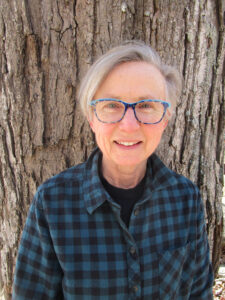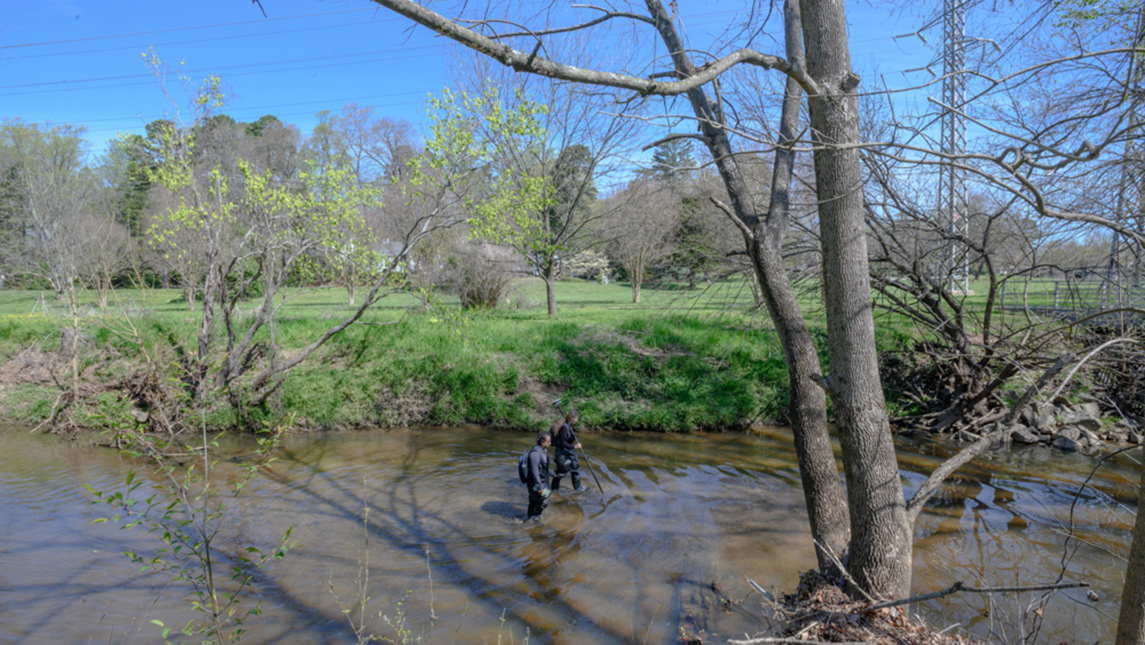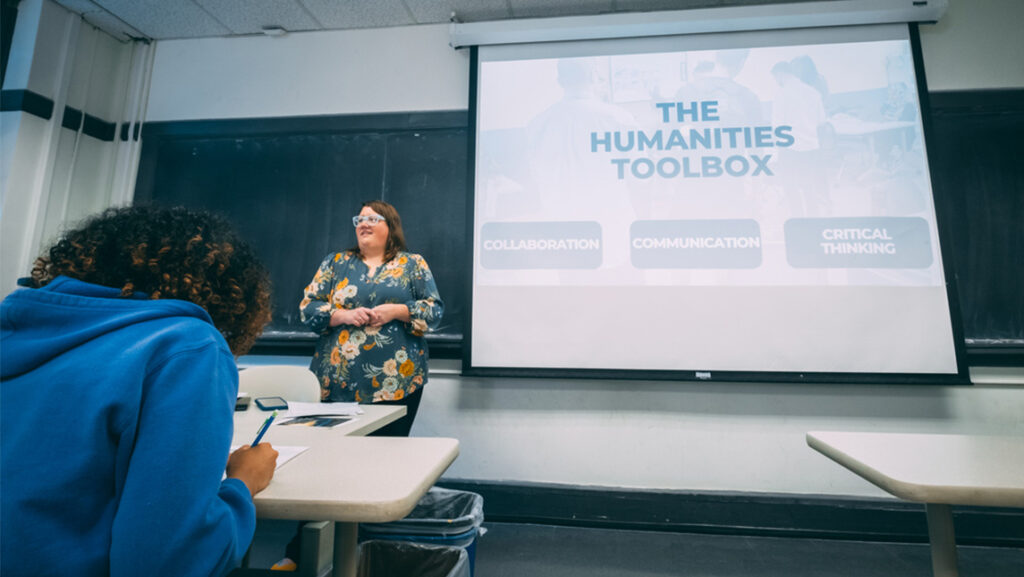Greensboro, known as the Gate City, is a hub for transportation, culture, and ideas. It’s also uniquely situated in the headwaters of the Cape Fear River.
So, it’s fitting that UNC Greensboro is also the nexus for a recently funded National Endowment for the Humanities (NEH) grant that focuses on the Cape Fear Watershed. The project is titled “Watersheds for Place-Based Experiential Education” and commonly referred to as the Cape Fear Watershed Project (CFWP).
Aaron Allen is the principal investigator on the CFWP, director of the Environment and Sustainability Program, and an associate professor in the School of Music. The co-principal investigator on the project is Karen Kilcup, who is the Elizabeth Rosenthal Excellence Professor of English, Environmental & Sustainability Studies, and Women’s, Gender, & Sexuality Studies. Allen and Kilcup brought together scholars from over 10 disciplines for this project across multiple universities.
Following the Cape Fear River’s path, which winds its way toward the coast, UNCG is collaborating closely with faculty from UNC Wilmington.
“We managed to pull all of these threads together – or channel all of these tributaries into a kind of mainstream – and the NEH funded the project,” Allen said.

These disciplinary tributaries are joining forces in the CFWP for the shared goals of creating engaging curricula about the Cape Fear Watershed for students in UNCG’s online master’s degree in Sustainability and Environment and fostering connections among scholars. UNCG students in this graduate program will have the opportunity to engage with this experiential, interdisciplinary content through modules, an optional field school program, and targeted topic courses.
Throughout the curricula, the humanities serve to anchor students’ understanding of and connection to the social, natural, and life science topics surrounding the watershed.
“The CFWP uses the humanities to connect natural- and social-science approaches to understanding a major bioregion of central North Carolina,” according to the grant proposal.
The project leverages the humanities both in students’ education and faculty’s creation of new curricula.
Scholars will attend development workshops through the CFWP to learn about humanistic approaches, create their modules and courses, and collaborate with one another. Kilcup said the “degree of passion and buy-in” among faculty at their first workshop, which was held via Zoom this summer, was palpable.
“It seems to me that this is why we got the grant, because everyone bore down hard and made important contributions to the grant proposal,” she said.
Behind-the-Scenes of Forging an Interdisciplinary Collaboration
These “important contributions” originated from faculty who are from wide-ranging disciplines and across universities. Scholars participating in the CFWP have disciplinary homes in a variety of fields, including biology, philosophy, geography, and communication studies.
Each faculty member will contribute their unique expertise to designing some aspect of the curriculum. For example, Sarah Praskievicz, an associate professor in the Department of Geography, Environment, and Sustainability, will spearhead students’ scientific inquiry for the field school program where students will travel and camp along the length of the river.
“I am excited by the opportunity the CFWP provides to explore our local watershed and share it with students,” Praskievicz said. “I hope that this project will help our students and the UNCG community build meaningful connections to place and to think about how rivers connect us all.”

Reaching across fields requires the ability to think and work outside of narrow disciplinary norms. When the CFWP project leads were asked what advice they would give to other scholars working to propose this type of cross-disciplinary grant, Kilcup mentioned the importance of thinking beyond narrow disciplinary norms.
“I would say try to form partnerships across disciplines, across departments,” Kilcup said. “You have to break down those walls.”
Both Allen and Kilcup emphasized how friendship fosters collaboration. Kilcup described an earlier partnership in which she met weekly with a colleague to share scholarly insights and cook Thai food. Friendship extends to Kilcup and Allen’s partnership, as well. These two scholars met through the Environmental Studies Program. After noticing they were of a “similar mind, similar bent,” they started sharing ideas and getting to know one another.
Allen also emphasized the importance of being willing to fail when forging collaborations. As is the case for many projects, it took this team multiple iterations to find the balance that would fit both their project goals and interest of a funding agency.
“Being open to that possibility of failure and learning from it is really key,” Allen said.
This alchemy of failure, friendship, respect, and hard work led to a NEH-funded grant that has the potential to bolster students’ education in the online master’s program in Sustainability and Environment for years to come. This program will serve as the foundation for further undergraduate offerings that will animate our place in the watershed for even more students.
“It’s a beautiful thing to bring these people together to do something that’s more than the sum of its parts for the benefit of our students, our communities, and our environments here in North Carolina,” Allen said.
Story by Rachel Damiani



